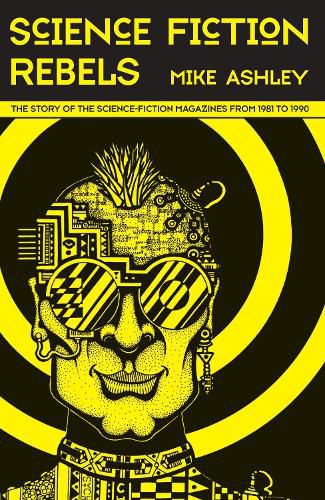Readings Newsletter
Become a Readings Member to make your shopping experience even easier.
Sign in or sign up for free!
You’re not far away from qualifying for FREE standard shipping within Australia
You’ve qualified for FREE standard shipping within Australia
The cart is loading…






Mike Ashley’s acclaimed history of science-fiction magazines comes to the 1980s with Science Fiction Rebels: The Story of the Science-Fiction Magazines from 1981 to 1990. This volume charts a significant revolution throughout science fiction, much of which was driven by the alternative press, and by new editors at the leading magazines. The period saw the emergence of the cyberpunk movement, and the drive for what David Hartwell called ‘The Hard SF Renaissance’, which was driven from within Britain. Ashley plots the rise of many new authors in both strands: William Gibson, John Shirley, Bruce Sterling, John Kessel, Pat Cadigan and Rudy Rucker in cyberpunk, and Stephen Baxter, Alistair Reynolds, Peter Hamilton, Neal Asher and Robert Reed in hard sf. He also shows how the alternative magazines looked to support each other through alliances, which allowed them to share and develop ideas as science fiction evolved.
$9.00 standard shipping within Australia
FREE standard shipping within Australia for orders over $100.00
Express & International shipping calculated at checkout
Mike Ashley’s acclaimed history of science-fiction magazines comes to the 1980s with Science Fiction Rebels: The Story of the Science-Fiction Magazines from 1981 to 1990. This volume charts a significant revolution throughout science fiction, much of which was driven by the alternative press, and by new editors at the leading magazines. The period saw the emergence of the cyberpunk movement, and the drive for what David Hartwell called ‘The Hard SF Renaissance’, which was driven from within Britain. Ashley plots the rise of many new authors in both strands: William Gibson, John Shirley, Bruce Sterling, John Kessel, Pat Cadigan and Rudy Rucker in cyberpunk, and Stephen Baxter, Alistair Reynolds, Peter Hamilton, Neal Asher and Robert Reed in hard sf. He also shows how the alternative magazines looked to support each other through alliances, which allowed them to share and develop ideas as science fiction evolved.